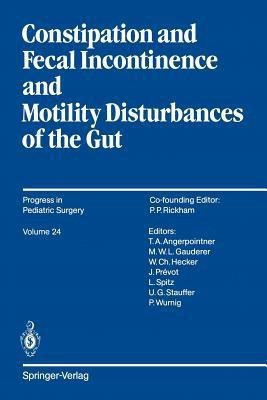Constipation and Fecal Incontinence and Motility Disturbances of the Gut(English, Paperback, unknown)
Quick Overview
Product Price Comparison
The clinical application of anorectal manometry was pioneered by pediatric sur- geons. Swenson in 1949 reported that the aganglionic bowel of patients with Hirsch- sprung's disease did not show any propulsive movements. In 1967 Lawson and Nixon and Schnaufer et al. found that the rectosphincteric reflex, which is ob- served in both normal individuals and patients with chronic idiopathic constipa- tion, is absent in patients with Hirschsprung's disease, and suggested anorectal manometry to be useful for the differentiation of Hirschsprung's disease from chronic idiopathic constipation. Studies on the pathophysiology of constipation and incontinence problems have flourished in Japan; the Japanese Research Society for Anorectal Manometry in Childhood was founded in 1975 by Ikeda, Okamoto, Katsumata, and Kasai. The Society has contributed greatly to advances in the clinical application of anorectal manometry. Basic investigations on the function of the anorectum in both normal individuals and patients with constipation or incontinence problems have also been promoted by members of the Society. The technique of anorectal manometry has been refined and standardized.The criteria for manometric diag- nosis of Hirschsprung's disease have been established. And the correlation be- tween postoperative continence in patients with Hirschsprung's disease or ano- rectal malformation and manometric findings has been understood. In this section, works by members of the Society are presented.


